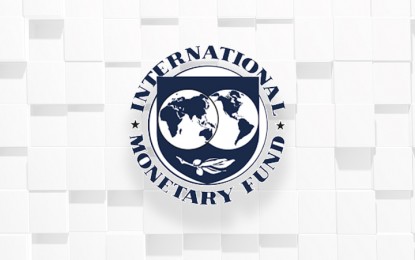
MANILA – The Philippine government’s fiscal space provides it the leeway to spend on additional stimulus to further cushion the pandemic’s impact on the vulnerable sectors, an International Monetary Fund (IMF) executive said.
In a virtual briefing for the release of the lender’s 2021 Article IV Consultation Wednesday, Mission chief Thomas Helbling said that while the government has implemented a comprehensive policy support package to address the pandemic’s impact on the economy and the vulnerable sectors, “more resources could be needed” especially for the vulnerable families and the businesses.
“(The) Philippines has some fiscal space to respond to downside risks should they materialize,” he said.
Helbling identified some of the downside risks to growth, such as the supply constraints and delays in the vaccinations against the coronavirus disease 2019 (Covid-19), which could result in another spike in cases as well as increase the effects of external shocks like hike in interest rates and inflation.
After meeting with economic managers, Bangko Sentral ng Pilipinas (BSP) officials, and representatives from the private sector from May 21 to June 11, Helbling said they took note of the gradual recovery of the Philippine economy and expect a stronger rebound starting in the second half of this year.
The IMF, however, reduced its growth forecast for the domestic economy to 5.4 percent for this year from 6.9 percent last April, but hiked the 2022 projection to 7 percent from 6.5 percent.
“The reason for this is we see a bit of slowing in the recovery in the first half of 2021 before pick-up in the second half of this year,” Helbling said, citing the spike in Covid-19 cases last March as the factor for the slower economic recovery earlier in the year.
Growth, as measured by gross domestic product (GDP), contracted by 4.2 percent in the first three months this year, slower than the previous quarter’s -8.3 percent print.
Helbling said additional fiscal support should be focused on further improving the healthcare system, funding for vaccination programs, continued support to the affected families and businesses, and funding for the infrastructure program.
He said the fiscal program for this year is “appropriate” and “provides for substantial stimulus.”
Helbling further said strong monetary policy is also expected to drive growth improvement and investors’ confidence.
BSP’s accommodative policy should remain, he said, adding this is seen as still appropriate vis-à-vis the current inflation pressures, which are considered to be temporary and will likely taper off in the second half of the year.
He said monetary policy’s task is to ensure that interest rates remain low for the households, firms, and the debt service.
Last year, the BSP slashed key policy rates by a total of 200 basis points to help buoy the domestic economy and encourage lending among banks.
To date, the rate of the central bank’s overnight reverse repurchase (RRP) facility is at record-low 2 percent.
Helbling also cited the need for the government’s push for structural reforms such as on tax reforms, digital payments, continued cutting of red tape, and climate mitigation and adaptation, as well as reduction on restrictions for foreign investments, fast-tracking of the national ID program, and further improvement on social protection programs.
“These reforms will help the Philippines build back better and position the country for a more equitable and greener future,” he added. (PNA)
